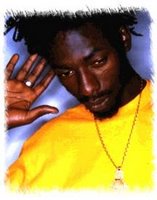The Dutch are Cheese Worms
“Oh, ha-ha,” he laughed, giving me a knowing nod, “you’re Dutch.”
He laughed again, as if the fact that I was Dutch were the punchline of some universal joke that I was completely oblivious to.
I was perplexed and I think my baffled expression communicated this confusion quite well.
“You like that weird freaky stuff,” he grinned, prompting me with his raised eyebrows.
“You know,” he said, “like that freakin’ perverted crap.”
He pointed his finger knowingly at me, “I’ve been to Amsterdam, don’t tell me that you don’t know I’m right.”
I smiled at his idiocy; something which he felt was an admission of guilt, “See! Ha ha, I knew it. You people are freaking perverted, man.”
“But you like that weed now, don’t you?” he seemed genuinely pleased about his knowledge of Hollanders, “good shit. You probably do the hard shit too, eh?”
I looked over at my wife, which was, according to him, another admission of guilt. He crowed with pleasure and then proceeded to lay out some more obtuse comments about my alleged sexual and narcotic proclivities.
It seemed futile to me to inform my inebriated attacker of my staunch Calvinist roots. I am the product of what is perhaps the antithesis of the contemporary Dutch stereotype. I am a religious, somewhat conservative individual who does not indulge in drug usage, abhors euthanasia and abortion, is monogamously heterosexual, and definitely does not do “weird freaky stuff.”
The older Dutch stereotypes are easier to take. I don’t mind being labelled as miserly, stubborn, mule-headed, practical, economical, disciplined, blunt, or even slightly stupid. Being labelled a pharmaceutically-plastered pervert is a littler harder to take. The disturbingly gross Dutch villain from the movie Austin Powers: Goldmember is, in all likelihood, partly to blame for the reinforcement of the modern Dutch stereotype. Fortunately, I did not have to explain to this all-knowing fellow that I do not eat my own skin.
Cruel stereotypes are quite effective in rousing public support for campaigns against one’s national enemies. These stereotypes might inspire fear, rage, or contempt, but any way they’re used they can help raise the necessary fighting men to fend off the enemy. From the crazed Muslim terrorists in Back to the Future and True Lies to the cruel Krauts supposedly nailing babies to church doors in Belgium there have been attempts throughout history to dehumanize the enemy.
Yes, the Netherlands was once a major world power. In the seventeenth century, the Netherlands was the economic envy of much of Europe and even threw mighty Britain into a bit of jealousy. There were Dutch trading posts throughout the world from Ceylon, Malacca, Deshima, and the Dutch East Indies to South Africa, Guyana, New Amsterdam, Suriname, and various forts along the coast of Africa. Along with this empire came a reputation as money-grubbing skinflints and frank stubborn louts. The Japanese who were known to be guarded in their speech were astonished at the forthrightness of the Dutch. They claimed that the Dutch were the most arrogant of all the European traders they dealt with. Of course, they also admired the Dutch trading skills as a Japanese proverb said, “Where the Dutchman has passed, not even the grass grows anymore.” This may also have referred to a certain lack of proper hygiene exhibited by the Dutch at this time. Still, the Dutch had not impressed the Japanese with their Protestant work ethic. One Japanese scholar observed the following: “content to waste his days and nights, [the Hollander] lolls in a large chair, smoking a long pipe and looking very bored. A table loaded with food is before him, a decanter and glasses at one arm and a fawning geisha at the other.”
The Dutch had a formidable empire. The only reason the Dutch haven’t dealt with the same post-colonial fallout and white guilt that the British have is because the British took over most of the Dutch possessions. Plus, the Dutch like to think of themselves as tolerant (this is called self-stereotyping) and the slave-trade and the exploitation of Indonesian labour doesn’t fit well into this equation.

So, the Dutch and the British hated each other because they both wanted to control the sea routes from the East Indies. Three wars were fought between the British and Dutch between 1652 and 1674. In May of 1667 the indomitable Admiral De Ruyter sailed up the Medway, wrought havoc on the British ships, and blockaded the Thames. And thusly did the Dutch defeat the poor British.
For a while.
The third war was also a failure for the British and their French allies as the land force was halted by flood waters and the Anglo-French fleet were handily defeated (four times!) by the clever De Ruyter. The tension between the Dutch and the English dimmed somewhat when in 1688 William III, Prince of Orange, assumed the English throne with his wife, Mary, and put the Dutch navy under the command of the British. When the English and Dutch navy were combined the English sailors viewed the Dutch with some resentment, and unwanted advice or orders from Dutch sailors were said to be from “my Dutch uncle.”
But the insults had begun before this: during the Second Anglo-Dutch War, a British admiral, Samuel Pepys, wrote the following not-so-flattering entry in his diary, “Methinks, by God, the devil must shit Dutchmen.”
As if being the excrement of the epitome of evil isn’t bad enough, a British pamphlet (The Dutch Boare Dissected, 1665) from the same period read “A Dutchman is a Lusty, Fat, Two-legged Cheese worm. A Creature that is so addicted to eating butter, drinking fat, and sliding (skating) that all the world knows him for a slippery fellow.” Not only that, but the Dutchman “loves to be down in the Dirt, and Boare-like, to wallow therein.” It was during this time, when the Dutchman was still a slippery dirt-wallowing cheese worm, that a number of new phrases entered the English idiom.
Dutch courage is the bravery one gains after drinking alcohol. This implies, of course, that the Dutch are not only drunkards, but that their courage is also sorely lacking. A Dutch bargain is a bargain settled over drinks. A Dutch headache is a hangover. A Dutchman’s draught is a big swig of alcohol. Dutch gold is brass, because the Dutch are too frugal to use real gold. Dutch comfort is cold comfort because, you know, things could be worse. A Dutch concert is badly played music because the Dutch are apparently lacking in that department. Dutch talent is the more the result of mistaken brawn than actual skill. Going Dutch or a Dutch Treat refers to both parties paying separately for a date. Double Dutch is writing or conversation that is as garbled and incomprehensible as the Dutch language (or it can be the use of two jumping ropes simultaneously in opposite directions). Dutch generosity is stinginess.
Before the Dutch were eclipsed by the French as the hated enemy, they were the original frogs. As swamp-dwelling men it made sense to call the Dutch frogs. In a 1672 anti-Dutch satirical cartoon, the Netherlands is portrayed as a huge horse dropping on which maggots feed and eventually grow into full-grown Dutch frogs. In this cartoon a frog dressed in military regalia begs the devil “Sweet little Devill thou shall't h
 ear my prayer/ A poor distressed Froglander to spare.” The French certainly ate frogs, but the Dutch were frogs. Considering the trimness of most of the modern Dutch, the depiction of Dutchmen as fat frogs in many early modern cartoons is quite humourous. John Arbuthnot’s 1712 polemic The History of John Bull argued that the natural enemies of the English were the Dutch rather than the French. While the Englishman (John Bull) is “an honest plain-dealing fellow, Cholerick, Bold, and of a very unconstant Temper,” the Dutchman (Nic Frog) is “a cunning sly Whoreson, quite the reverse of John in many particulars; Covetous, Frugal; minded domestick affairs; would pine his belly to save his Pocket, never lost a Farthing to careless servants, or bad debtors.” The Dutchman dwells in “a marshy soil and unwholesome Air, infested with Fogs and Damps.” In The Embarrassment of Riches, Simon Schama writes “It was only in the eighteenth century, when France rather than the [Dutch] Republic had established itself as a major naval adversary of the British, that their satires turned to eaters, rather than imitators of the frog, for stock abuse” (264).
ear my prayer/ A poor distressed Froglander to spare.” The French certainly ate frogs, but the Dutch were frogs. Considering the trimness of most of the modern Dutch, the depiction of Dutchmen as fat frogs in many early modern cartoons is quite humourous. John Arbuthnot’s 1712 polemic The History of John Bull argued that the natural enemies of the English were the Dutch rather than the French. While the Englishman (John Bull) is “an honest plain-dealing fellow, Cholerick, Bold, and of a very unconstant Temper,” the Dutchman (Nic Frog) is “a cunning sly Whoreson, quite the reverse of John in many particulars; Covetous, Frugal; minded domestick affairs; would pine his belly to save his Pocket, never lost a Farthing to careless servants, or bad debtors.” The Dutchman dwells in “a marshy soil and unwholesome Air, infested with Fogs and Damps.” In The Embarrassment of Riches, Simon Schama writes “It was only in the eighteenth century, when France rather than the [Dutch] Republic had established itself as a major naval adversary of the British, that their satires turned to eaters, rather than imitators of the frog, for stock abuse” (264).Perhaps I should have turned to my antagonist and given him a good old fashioned Dutch rub.




